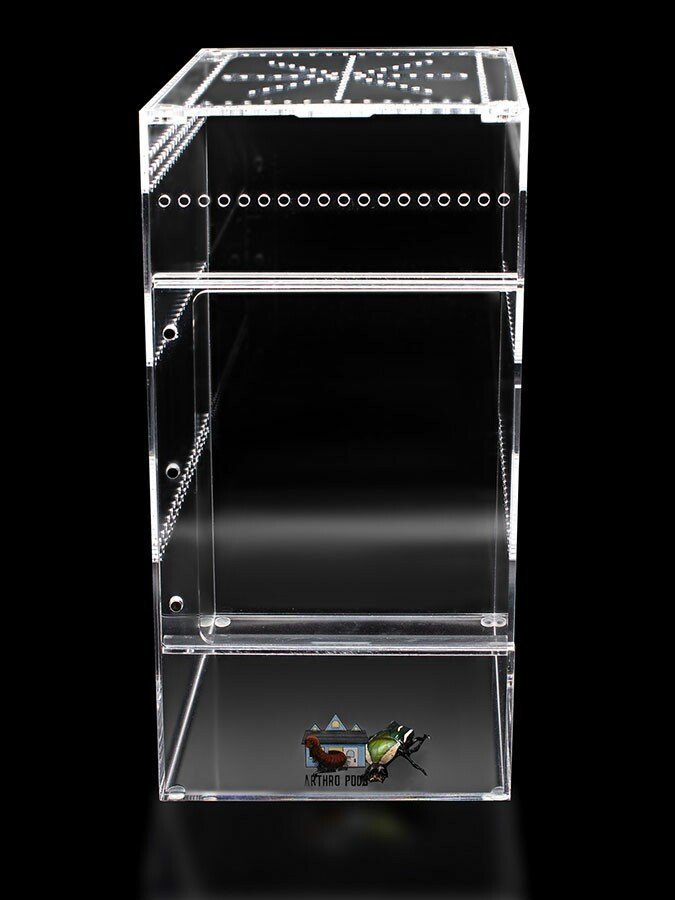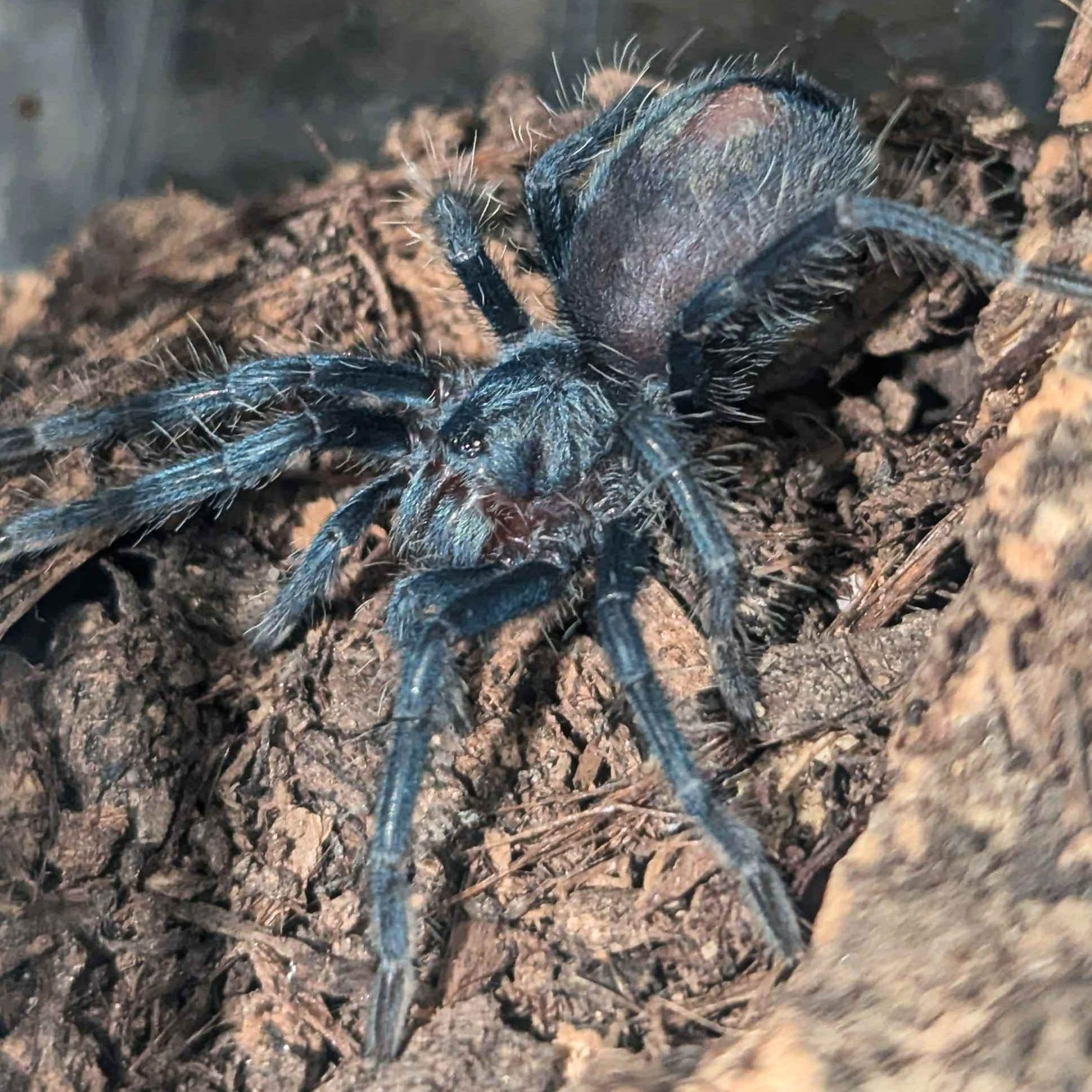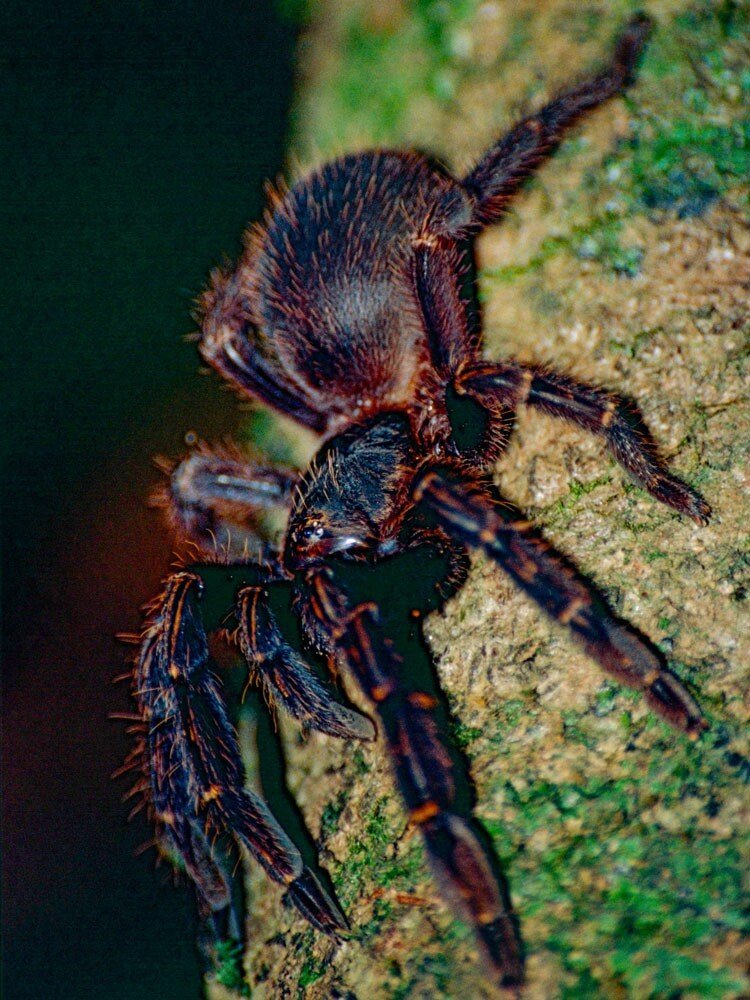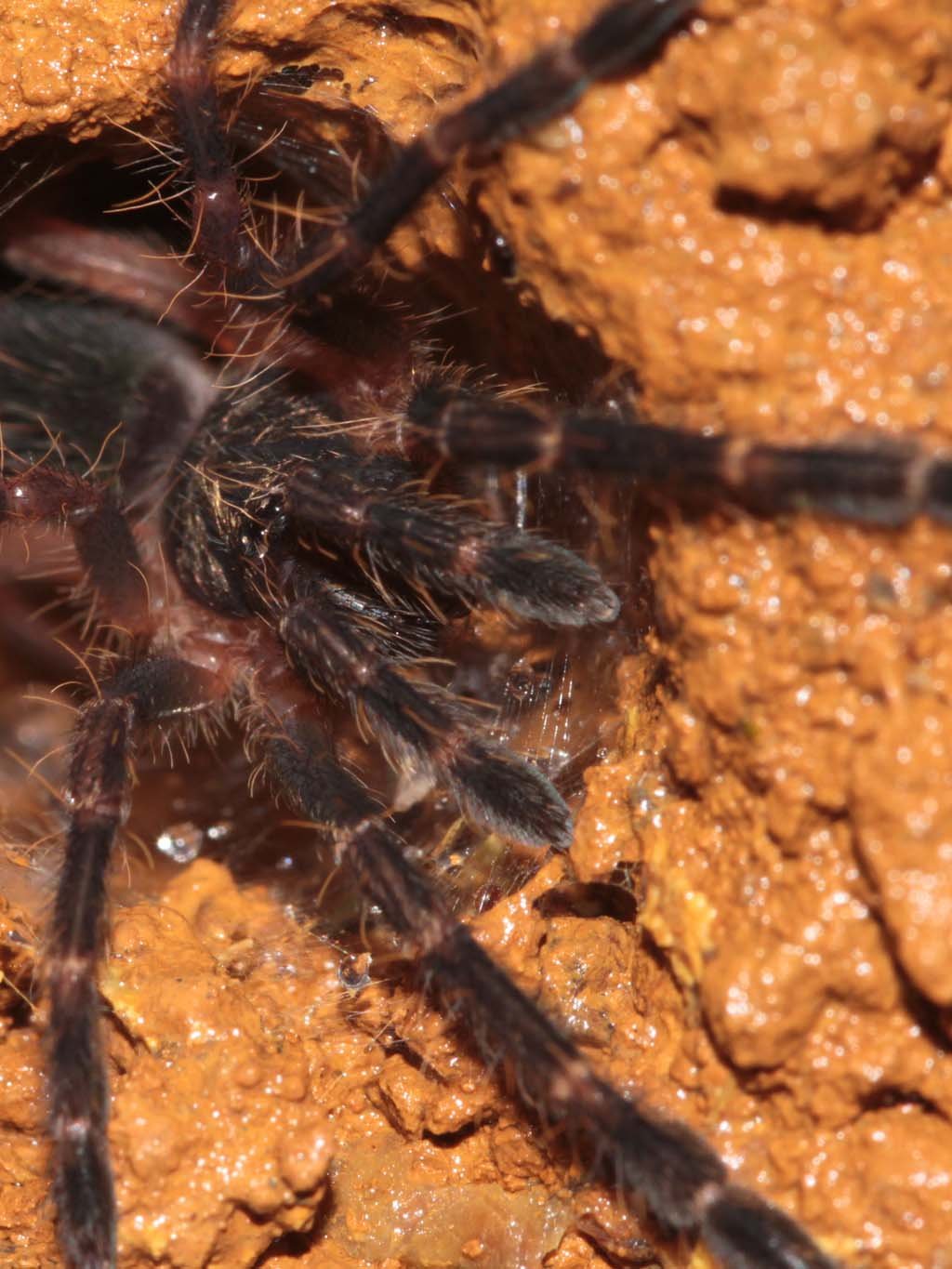What's the ideal diet for a Purple Tree Spider?
All Tarantulas can eat a variety of feeders. Stick to crickets, dubia roaches, silkworms, horned worms occasionally, and a superworm or mealworm as the occasional treat!
How should I keep a Purple Tree Spider?
For this particular creature, you can start with a small Arboreal Bliss enclosure, and when they get to be about ⅓ the size, you will want to upgrade to a medium or large Arboreal Bliss enclosure. Feed them as slings once a week, twice if their opisthosoma (abdomen) looks small, but if the opisthosoma is wider than their prosoma (cephalothorax), then wait a couple of days to feed. For juveniles or adults, stick to feeding once a week, nothing larger than their opisthosoma. Make sure to keep a full water dish at all times; wider and deeper is fine. Your tarantula can’t drown; they float on water.
How long could a Purple Tree Spider live?
Females are believed to live around 6-9 years, with males only living between 2-3 years. All estimates are based on multiple sources.
Photo courtesy of Wikipedia (CC BY-SA 4.0)

















